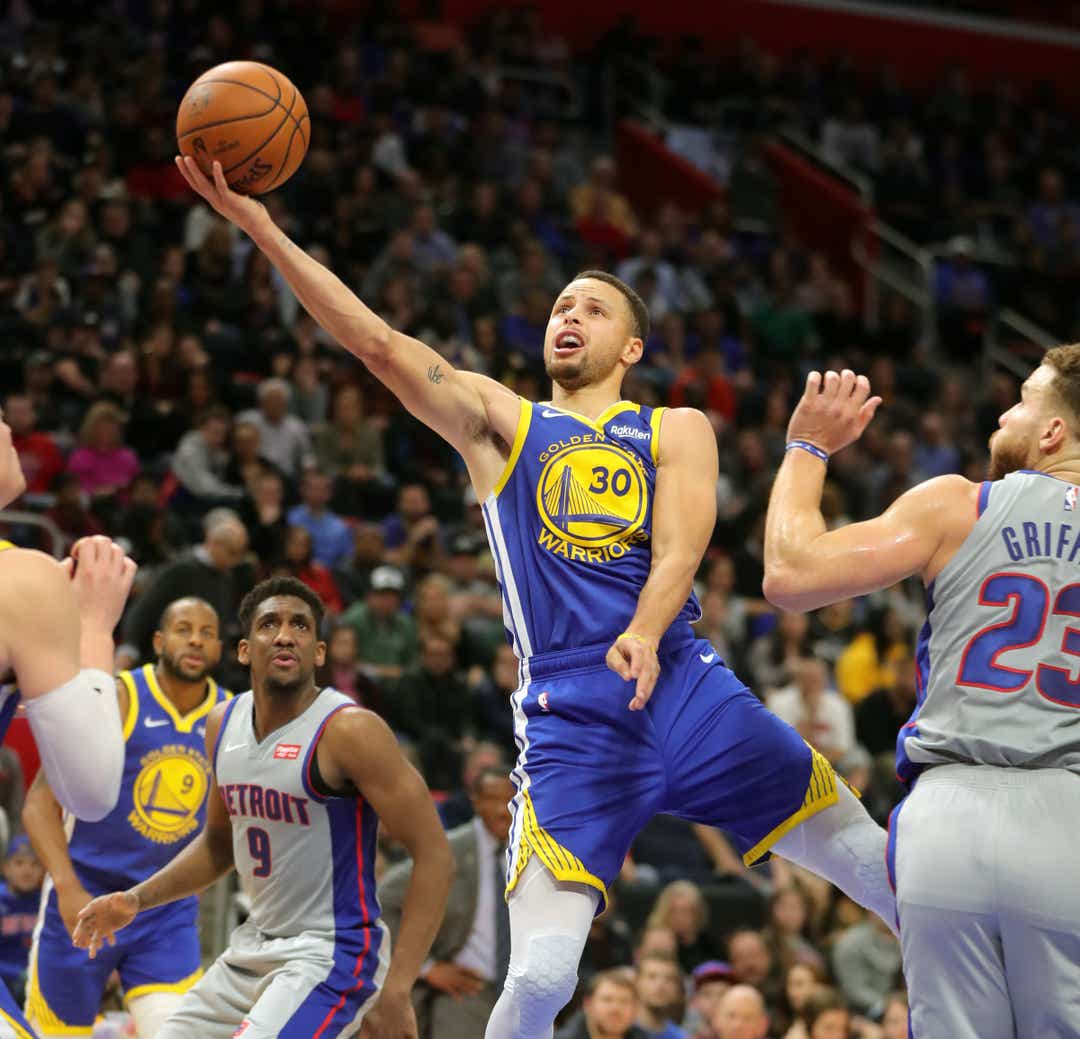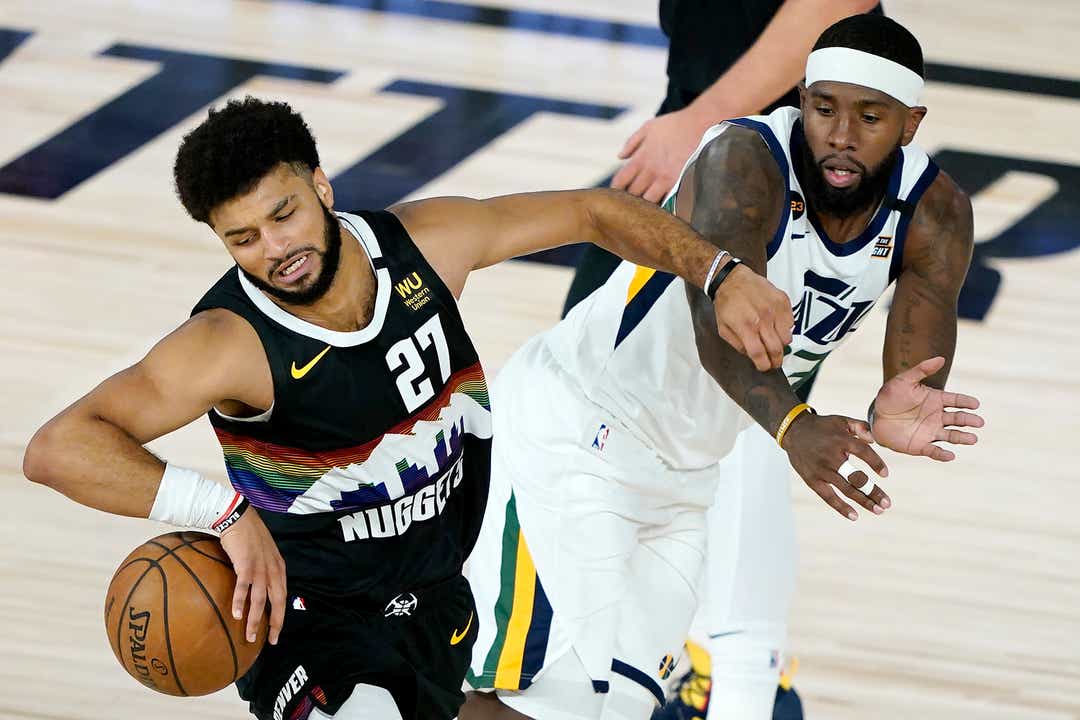Thursday’s 2020 NBA draft lottery was the latest in a recent trend of disappointing lotteries for Detroit teams, as the Detroit Pistons fell from their No. 5 spot into the seventh pick, despite having a 42.1% chance to move up.
It’s not a death knell for the Pistons’ hopes of finding a player to embrace in their rebuild, as general manager Troy Weaver noted afterward: “Before everybody starts with the ‘woe is me,’ don’t do that with us. We’re not that. We’re not built that way. We’re going to charge forward and get after it for the seventh pick.”
And indeed, the No. 7 spot has produced plenty of talent over the years, even if it wasn’t always for the team doing the drafting. Vinnie Johnson went seventh to Seattle in 1979 and Rip Hamilton went seventh to Washington 20 years later; both have their numbers retired by the Pistons. Of course, your mileage may vary — Charlie Villanueva went seventh to Toronto in 2005 and joined the Pistons in 2010; he’s not getting his number retired until they start honoring especially bad contracts.
[ Omari Sankofa: Pistons should target these 5 prospects in 2020 NBA draft ]
Here are some of the more notable names who went seventh in NBA draft history:
Detroit’s only try: Greg Monroe

The Pistons franchise has picked seventh once since moving to Detroit from Fort Wayne, Indiana, in 1957; in 2010, then-GM Joe Dumars selected Georgetown big man Greg Monroe.
Monroe fit the Pistons’ stated needs, as Dumars noted on draft night: “I think we made it very clear from the outset that we were going to target a big, and we were going to try to get a big that could come in and help us right away. In drafting Greg Monroe, he obviously addresses both of those things.”
The lone knock on Monroe was that he’d never been a dominant force, a player whose obvious talent didn’t quite match the on-court results, as the Freep’s Michael Rosenberg noted after the draft: “When I asked him Thursday night if his game is misunderstood, he said calmly, ‘I don’t know. The people that evaluate me are very knowledgeable about the game.’ “
And sure enough, Monroe was a solid enough player for the Pistons, averaging 14.3 points, 9.2 rebounds and 2.3 assists in 378 games. Yet the Pistons averaged just 29 wins a year during his tenure and chose to let him walk after the 2015 season for nothing. (They drafted fellow Big East big man Andre Drummond in 2013, laying the groundwork early.)
It’s tough to criticize the pick too much: Despite playing overseas in 2019-20, Monroe is the fourth-most productive player from the 2010 draft at 49.4 Win Shares, though the two most productive — Gordon Hayward (53.7) and Paul George (70) — were taken with the No. 9 and No. 10 picks, respectively.
An early Pistons great: George Yardley
The Pistons originally played in Fort Wayne in the Basketball Association of America; Yardley, a 6-foot-5 wing out of Stanford, was their first pick upon joining the NBA in 1950.
Three years after the draft, he finally joined the Pistons and struggled in his first season in Indiana. But by the Pistons’ move East, he’d become a perennial All-Star. His only full season in Detroit — he came with the team in 1957 — was legendary, as he became the first Piston to score 50 points in a game, with 51 against the Celtics on Jan. 15, 1958, and the first NBA player to score 2,000 points (averaging 27.8 points a game) in a single season.
He didn’t spend much time in Detroit — 118 games — before breaking his hand midway through the 1958-59 season. For a week, Yardley was in limbo, with a trade announced but not the team or the return, pending an exam of his hand. Finally, then-Pistons owner Fred Zollner shipped Yardley to the Syracuse Nationals (who would become the Philadelphia 76ers in 1963). He was out of the NBA after the 1959-60 season, but was inducted into the Basketball Hall of Fame in 1996, with six All-Star appearances in seven seasons.
More Hall of Famers: McGuire, Havlicek, Riley, King, Mullin
Five other Hall of Famers have gone seventh overall, though only four made it on their playing credentials. The five:
Dick McGuire: Drafted in 1949 by the Knicks, the guard lasted 11 seasons — the final three in Detroit — and averaged eight points and 5.7 assists a game. He was inducted into the Hall in 1993 but is the second-most famous hoops lifer in his family; brother Al was a legendary coach who led Marquette to the 1977 NCAA title.
John Havlicek: The Ohio State star spent his entire career with the Celtics after his selection in 1962. He made the Hall of Fame in 1984 as one of the greatest small forwards in NBA history, averaging 20.8 points, 4.8 assists and 6.3 rebounds over 16 seasons.

Pat Riley: Taken by the San Diego Rockets in 1967, Riley’s nine-season career as a backup was overshadowed by his run as Lakers, Knicks and Heat coach and executive, thanks to five NBA titles, four other Finals appearances and induction into the Hall of Fame as a coach in 2008. He then won two more titles as Heat president by putting together the Big 3 of LeBron James, Dwyane Wade and Chris Bosh.
Bernard King: A scorer everywhere he played, including in college at Tennessee, King lit it up from 1977-79 with the Nets, then played with the Jazz, Warriors, Knicks, Bullets and Nets once again. A brutal knee injury in 1985 cost him nearly two seasons, but he averaged 22.5 points a game over 874 appearances, including the 1984-85 season in which he led the NBA at 32.9 points a game.
Chris Mullin: The St. John’s star crossed the country for his star turn with the Warriors, averaging 20.5 points, 4.5 rebounds and four assists in his first 12 seasons, with five All-Star berths. He also spent three seasons with the Pacers, which we’ve all agreed to forget, before finishing his career with the Warriors and going into the Hall in 2011.
The future Hall of Famer: Stephen Curry

That Hall-of-Famer total will grow by one on the first ballot Stephen Curry is eligible on; the 32-year-old has six All-Star berths, three NBA titles and two MVP awards since the Warriors took him from Davidson in 2009. (Maybe you’ve heard of him?)
Then again, he might not show up on this list had the team picking directly before the Warriors, the Minnesota Timberwolves, not passed on Curry to take point guards Ricky Rubio and Jonny Flynn. Rubio, at least, has had a solid career, albeit with only a 2012 All-Rookie nod to show for it. Flynn, meanwhile, lasted three seasons in the NBA, averaging 9.2 points and 3.9 assists over 163 games.
The past decade: ?
The 10 No. 7 picks since Curry’s selection have been mostly mediocre. The best in that span:
Harrison Barnes: The Warriors’ 2012 pick was a key part of their first title team, but then signed a max deal with the Mavs; he lasted just 2.5 season before Dallas dumped his contract on Sacramento.
Julius Randle: Injuries cost him all but one game of his rookie year in 2014-15, and the Lakers were more than willing to let him walk to clear out cap space for their rebuild two seasons ago. He has averaged at least 19 points and eight rebounds the past two seasons in New York and New Orleans.

Jamal Murray: The former Kentucky star has steadily improved since his rookie year in 2016-17, with 18.5 points a game on 51.9% effective shooting percentage this season.
With this year’s draft seemingly short on generational talents, a return like Barnes’, Randle’s or Murray’s would go a long way toward accelerating the Pistons’ rebuild.
Free Press sports writers Vince Ellis, Matt Fiorito, Michael Rosenberg and Omari Sankofa II contributed to this report.
Contact Ryan Ford at rford@freepress.com. Follow him on Twitter @theford. The Free Press has started a new digital subscription model. Here’s how you can gain access to our most exclusive Detroit Pistons content.